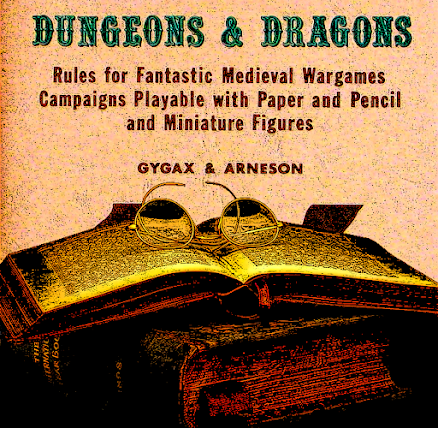Tabletop roleplaying's traditional form involves a sharp division of labor. Conan, for all his might, had little control over the enemies he fought, only his own choices and those things he could change through personal effort. But there's another tradition: storygaming, perhaps without a formal gamemaster, where everyone collaborates on all elements of an adventure - and all without the classic authoritarian bent. Not my cup of tea: but I'm a live-and-let live person who gets how our hobby's origin might also have been collaborative.
So early D&D was a freestyle affair, emphasizing rulings over rules (as befit the game; nothing's absolute, least of all our hobby) and leaning heavily into the social contract. Even so, there was a clear division of labor as vital as any rule. The Dungeon Master built the setting and became any and everything not a player character, whether innkeeper or lurking cutpurse. This lent a sense of realism because, much like our world, influence was hard-earned and greatly limited. No collaborative, lets-make-a-story-together stuff here...
Or was there? Because in OD&D's Monsters & Treasure booklet, Gary offered this piece of advice for "unlisted" monsters. Read to the bottom of page 20 for this gem:
LARGE ANIMALS OR INSECTS: If the referee is not personally familiar with the various monsters included in this category the participants of the campaign can be polled to decide all characteristics [End quote; and this included Martian beasts from Burroughs].
That's right, Gary suggested that certain campaign elements might be subject to collaborative debate among the players; and while this doesn't rise to story gaming as we know it today (and certainly not the stuff The RPG Pundit so reviles), it nonetheless suggested that players could have a hand in establishing elements their characters would never reasonably have any control over. I mean, when I was in Iraq we really wished we could magically dictate the capabilities of the enemy to our favor, but such influence was beyond us all...
I make no claims beyond Gary's words. I wasn't part of the early sessions and can't speak to the extent this sort of thing happened (although it's not a stretch to imagine enthusiastic amateurs borrowing each other's ideas while creating this new hobby off the cuff). But what it really means is that while the so-called classic playstyle was cemented early on, there was nonetheless this transitional time when it hadn't happened yet. A time where D&D's true purpose (and ultimate source of fun), lay in people interacting with each other first.


One of the many reasons I love old rpgs and never got on with computer games much...is the freewheeling, open, spontaneity of it. As a DM I do put a lot of effort planning certain things, but I expect that everything goes out the window once things actually begin. Polling players is a tiny part of that. I mean, I don't pretend to know what the percentage chance of landing elegantly after slipping on oil, tripping over the table, and falling out the window of a 12 story stone tower would be off the top of my head...
ReplyDeleteNice articles and your information valuable and good articles thank for the sharing information buy puppy starter kit
ReplyDelete